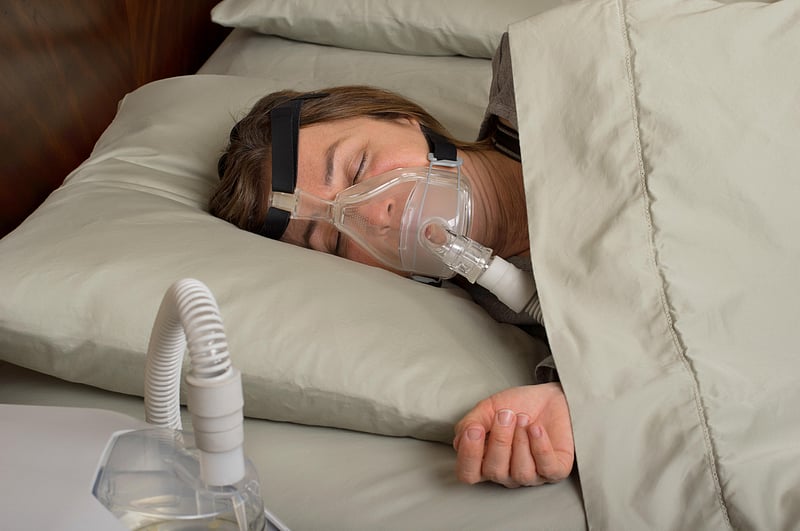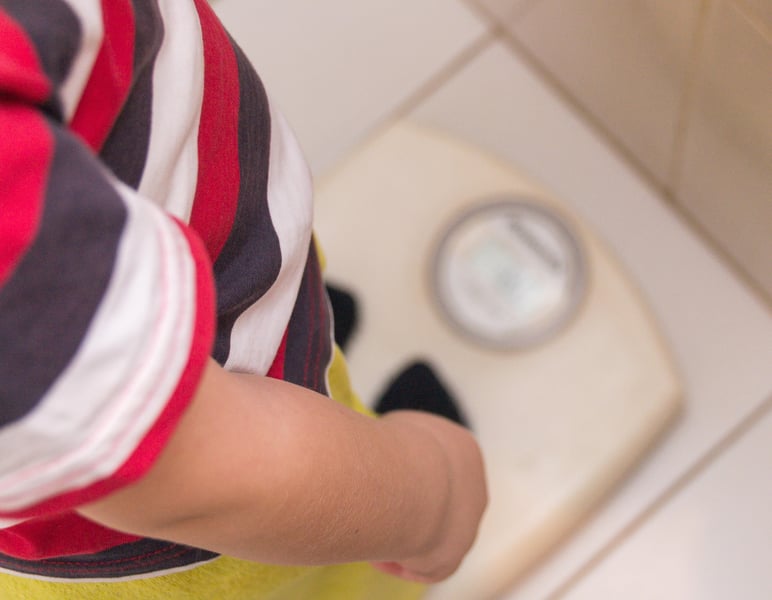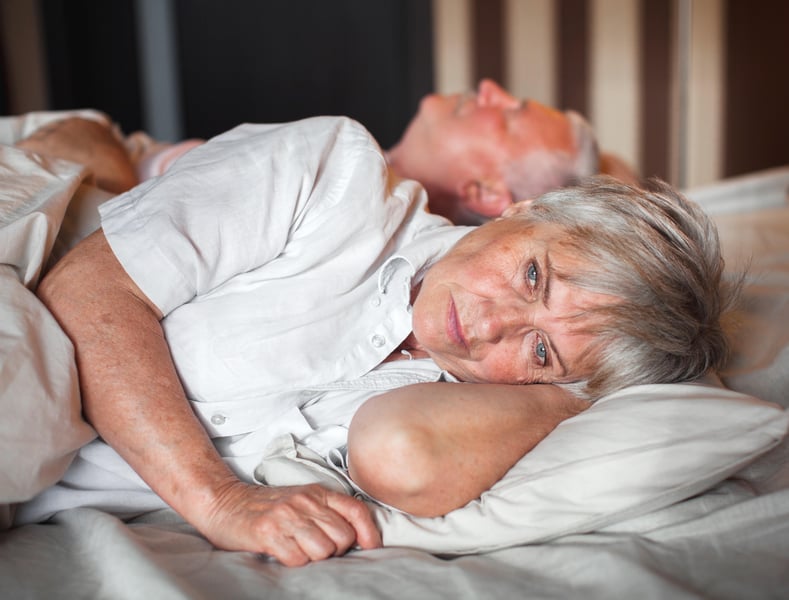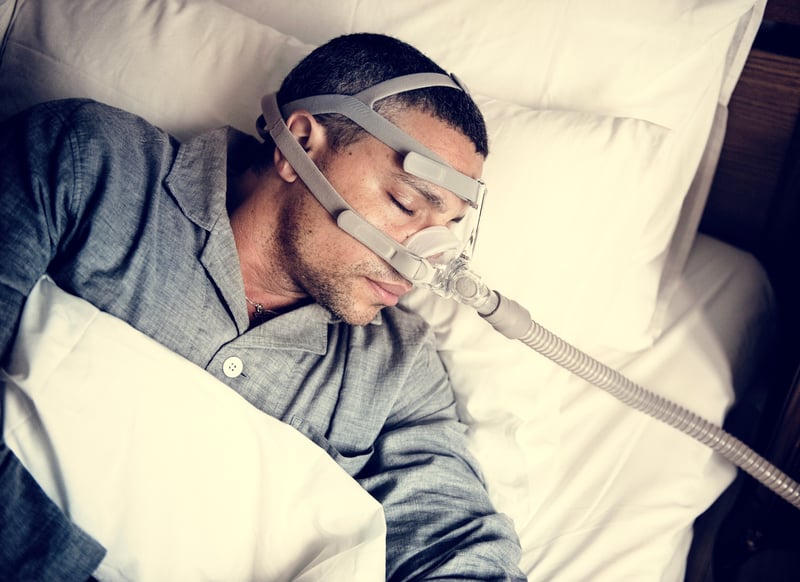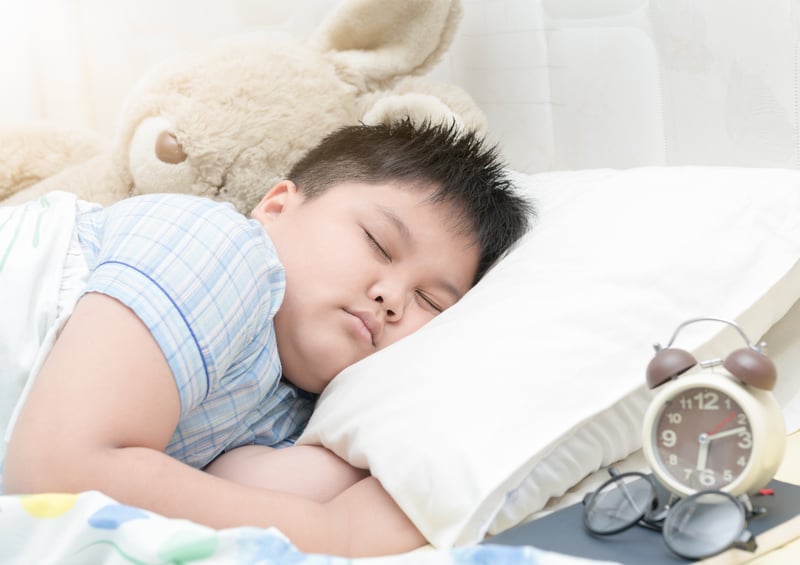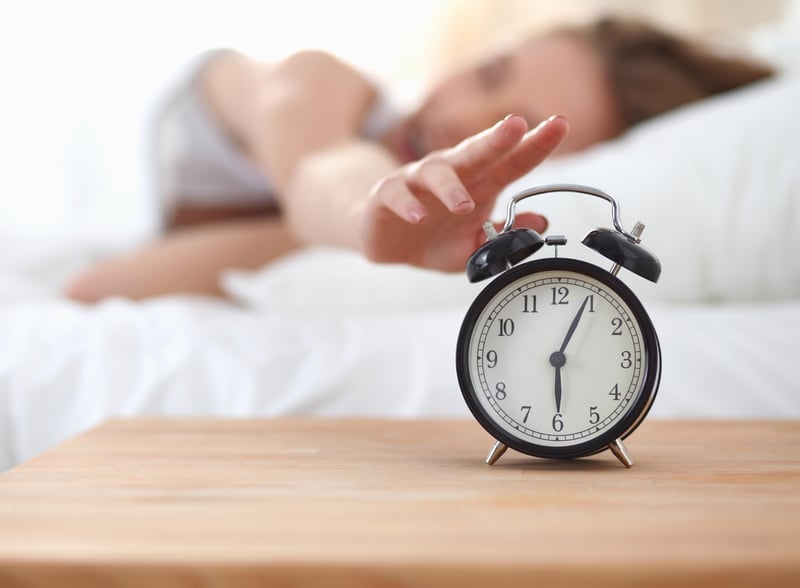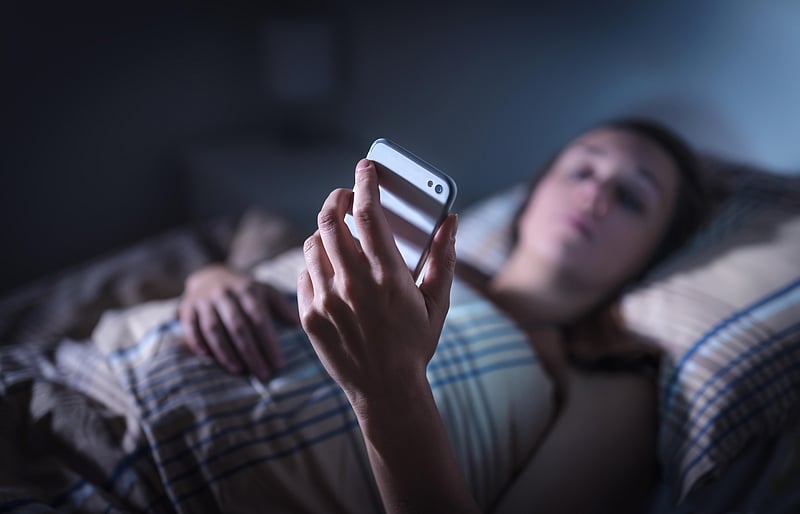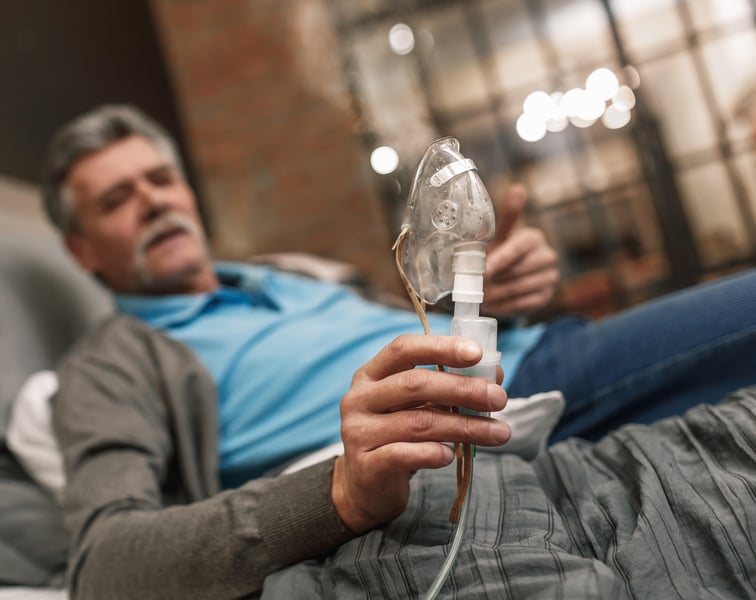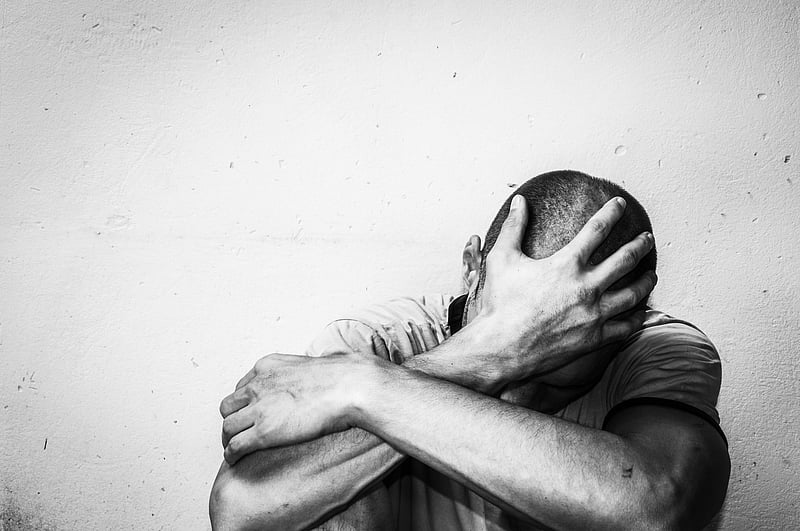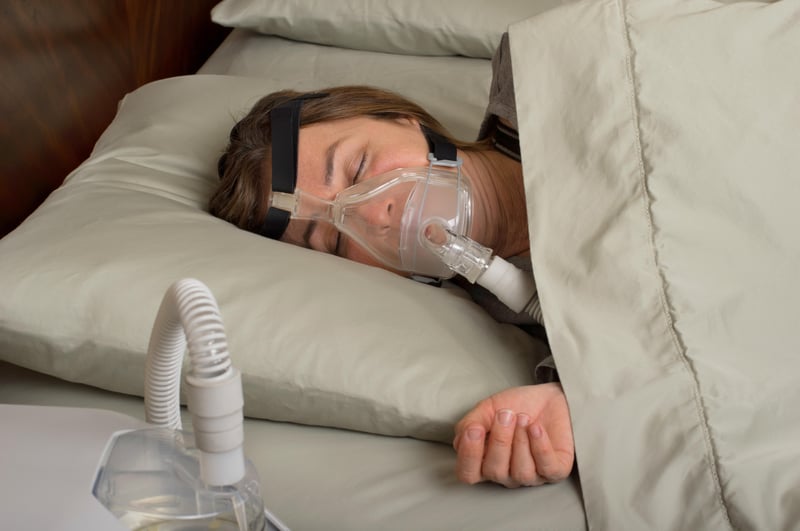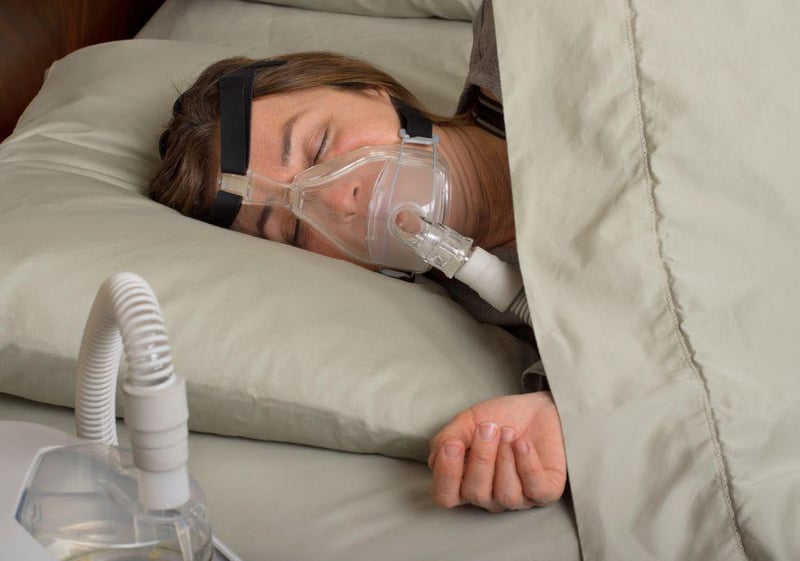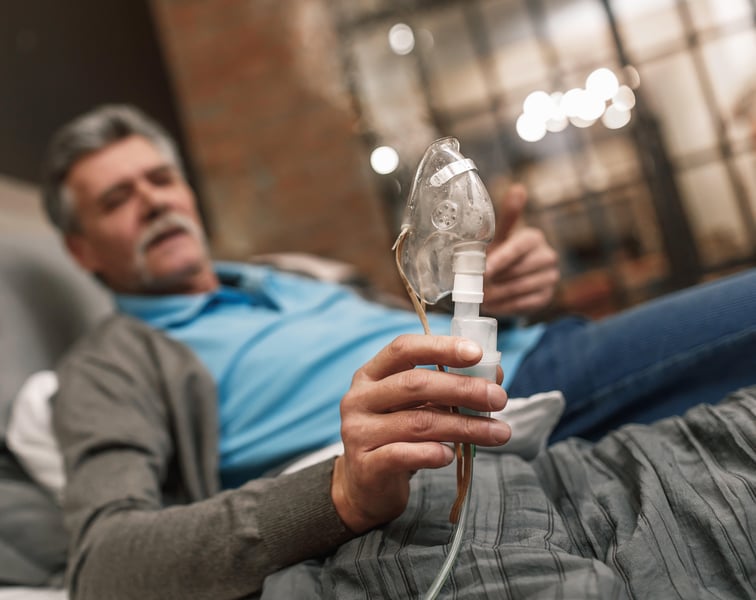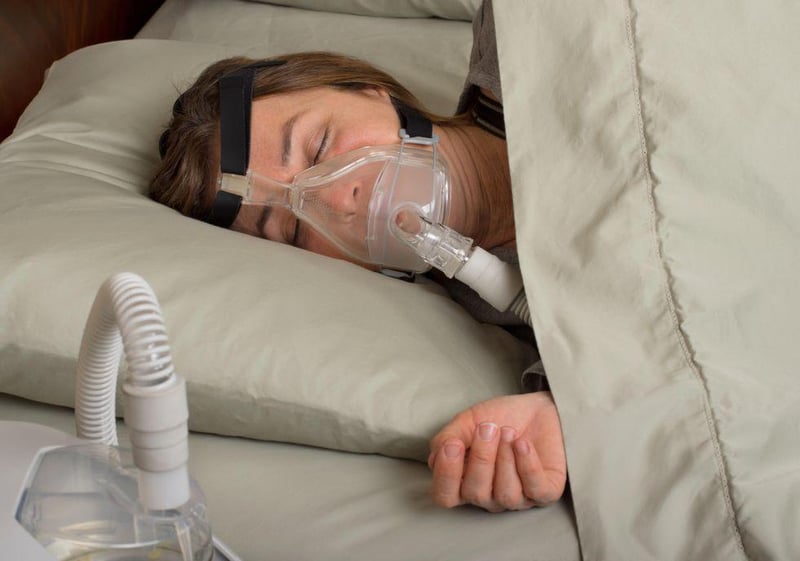Get Healthy!
Results for search "Sleep Problems: Apnea".
Health News Results - 48
Add one more damaging consequence of sleep apnea to the list: New research suggests it's related to late-life epilepsy.
Late-onset epilepsy is defined as seizures that tend to begin only after the age of 60.
The condition might be related to underlying heart or brain illnesses, noted study co-author Dr. Rebecca Gottesman, chie...
- HealthDay Reporter
- Ernie Mundell
- |
- May 2, 2024
- |
- Full Page
Zepbound, one of the wildly popular weight-loss drugs that millions of Americans now take, eased sleep apnea in obese adults in two company trials, drug maker Eli Lilly announced Wednesday.
First approved to treat obesity by the U.S. Food and Drug Administration last Nov...
- HealthDay Reporter
- Robin Foster
- |
- April 17, 2024
- |
- Full Page
Microplastics could be migrating from the digestive tract into the kidneys, livers and brains of human beings, a new mouse study suggests.
Lab mice exposed to microplastics in their drinking water wound up with the tiny plastic particles lodged in a number of different organs, researchers reported April 10 in the journal Environ...
- HealthDay Reporter
- Dennis Thompson
- |
- April 17, 2024
- |
- Full Page
Four-year-old Theo Scott was born with Down syndrome, and since the age of 1 he's also had to wear a CPAP device whenever he sleeps, to help ease his sleep apnea.
He's not alone: Eight out of 10 kids with Down syndrome have sleep apnea.
Luckily for Theo, his nightly CPAP ordeal may be over. He...
- HealthDay Reporter
- Dennis Thompson
- |
- April 11, 2024
- |
- Full Page
People who survive a long and harrowing bout of COVID-19 do not emerge unscathed from their illness, a new study warns.
Two-thirds of severe COVID patients still have physical, psychiatric and thinking problems one year after their illness, researchers report.
The report highlights the ongoing ...
- HealthDay Reporter
- Dennis Thompson
- |
- April 11, 2024
- |
- Full Page
Phillips Respironics, the company responsible for the recall of millions of defective sleep apnea machines since 2021, must overhaul its production of the machines before it can resume making them in the United States, federal officials announced Tuesday.
Under a settlement reached with the company, Phillips must revamp its manufacturing and quality control systems and hire independent ex...
- HealthDay Reporter
- Robin Foster
- |
- April 10, 2024
- |
- Full Page
Obese folks are less likely to benefit from a nerve-stimulation treatment for sleep apnea that's recently been made available to them, a new study reports.
The treatment is likely to be 75% less effective among obese people with BMIs of 32 to 35, compa...
- HealthDay Reporter
- Dennis Thompson
- |
- April 5, 2024
- |
- Full Page
Sleep apnea could have detrimental effects on the brain, causing memory or thinking problems, a new study suggests.
People suffering from sleep apnea are about 50% more likely to also report having memory or thinking problems, compared to those without sleep apnea, researchers say.
"These findings highlight the importance of early screening for sleep apnea,"said researcher
A person's diet can influence their risk of obstructive sleep apnea, a new study says.
Those who eat a healthy plant-based diet rich in vegetables, fruit, whole grains and nuts are less likely to suffer sleep apnea, according to findings published Feb. 20 in the journal ERJ Open Research.
On the other hand, people wh...
- HealthDay Reporter
- Dennis Thompson
- |
- February 21, 2024
- |
- Full Page
Sleep apnea appears to be linked to an increased risk of heart failure among cancer patients, a new study says.
Obstructive sleep apnea occurs when relaxed muscles cause a blockage of the windpipe, interrupting breathing and causing a person to temporarily wake.
The new study involved 296 general heart patients and 218 cancer patients with heart problems, researchers said.
Sle...
- HealthDay Reporter
- Dennis Thompson
- |
- February 12, 2024
- |
- Full Page
Following a recall of millions of its breathing machines that began in mid-2021, Phillips Respironics announced Monday that it would halt sales of all such machines within the United States.
The machines include continuous positive airway pressure (CPAP) devices used by people with sleep apnea, as well as ventilators used by other patients.
The
Do you drive with the window open? Sip coffee behind the wheel? Blast the car radio and sing along? Fidget and fuss in the driver's seat?
These sorts of driving habits could be a sign that you're getting poor sleep because you suffer from sleep apnea, a new study suggests.
Folks with sleep apnea frequently employ more than three of these strategies while driving, in an attempt to re...
- HealthDay Reporter
- Dennis Thompson
- |
- January 18, 2024
- |
- Full Page
For sufferers of sleep apnea, continuous positive airway pressure (CPAP) machines may guard against having a second heart attack, stroke or other cardiovascular crisis, but they have to use it consistently, a new study finds.
CPAP works by keeping your airways open during sleep, but because it requires wearing a mask, many people find it uncomfortable so they don't keep it on the amount ...
- HealthDay Reporter
- Steven Reinberg
- |
- October 4, 2023
- |
- Full Page
Millions of people who suffer from sleep apnea go to bed at night with a motorized device called a CPAP machine.
Now, two new studies confirm the treatment has significant benefits not just on quality of sleep, but also for keeping people's hearts healthy.
Together, the studies may offer more reasons to endure the not-always-comfortable treatment known as continuous positive...
- HealthDay Reporter
- Cara Murez
- |
- September 11, 2023
- |
- Full Page
Philips Respironics has agreed to a partial $479 million settlement to users of CPAP machines that blew gases and flecks of foam into their mouths and lungs.
Class action lawsuits against the company are ongoing, the New York Times reported.
This agreement is only for monetary reimbursements to device users and vendors who paid for replacement machines. It does not have a ...
- HealthDay Reporter
- Cara Murez
- |
- September 8, 2023
- |
- Full Page
A continuous positive airway pressure (CPAP) machine can relieve not only sleep apnea but the heartburn and chronic cough that often accompanies it, a new study finds.
People who suffer from sleep apnea are three times more likely to develop acid reflux than those who don't have the condition, noted senior researcher Dr. Tho...
- HealthDay Reporter
- Steven Reinberg
- |
- September 1, 2023
- |
- Full Page
Childhood obesity is concerning for many reasons, among them that the severity of the sleep disorder known as obstructive sleep apnea (OSA) grows with obesity levels and age.
A new study looked at the role of obesity in children's OSA. It adds to a growing awareness of the part ob...
- HealthDay Reporter
- Cara Murez
- |
- August 11, 2023
- |
- Full Page
A small battery-operated device long used as a treatment for pain may also help patients with sleep apnea, a British study suggests.
Sleep apnea is a condition that impedes breathing during sleep, reduces oxygen intake and undermines sleep itself.
The remedy: zapping sleepers with continuous but controlled electric pulses to open obstructed airways, improve breathing and restore sle...
- HealthDay Reporter
- Alan Mozes
- |
- August 10, 2023
- |
- Full Page
Sleep apnea may increase the risk of heart attack and stroke as erratic breathing causes oxygen levels to drop, new research shows.
"These findings will help better characterize high-risk versions of obstructive sleep apnea," said co-author Ali Azarbarzin, director of the Sle...
- HealthDay Reporter
- Steven Reinberg
- |
- July 31, 2023
- |
- Full Page
More than one-third of coupled Americans who want better sleep are opting for a "sleep divorce."
They're not actually divorcing, but sleeping in another room so that they each sleep better.
"We know that poor sleep can worsen your mood, and those who are sleep deprived are more likely to argue with their partners. There may be some resentment toward the person causing the sleep dis...
- HealthDay Reporter
- Cara Murez
- |
- July 13, 2023
- |
- Full Page
President Joe Biden Has started using a continuous positive airway pressure (CPAP) machine at night in recent weeks to help ease sleep apnea, the White House announced Wednesday.
As reported by the Associated Press, Biden first mentioned his history of sleep apnea in 2008, but the announcement came as indents were noted on his face when he departed the White House on Wednesday fo...
- HealthDay Reporter
- Ernie Mundell
- |
- June 29, 2023
- |
- Full Page
When it comes to diagnosing sleep apnea, current screening methods may put Black patients at a disadvantage, new research suggests.
Obstructive sleep apnea (OSA) is a serious sleep disorder characterized by disrupted breathing during sleep. An initial screening tool might be an overnight pulse oximeter test -- a small device clipped on to a fingertip that measures blood oxygen levels.
...- HealthDay Reporter
- Cara Murez
- |
- May 24, 2023
- |
- Full Page
If you're one of the millions of folks with sleep apnea, you may be more likely to develop long COVID, a new study suggests.
Adults with obstructive sleep apnea were 75% more likely to experience long COVID symptoms than people without the disorder, which is marked by pauses in breathing during sleep.
People with long COVID experience new, lingering or worsening symptoms for more th...
- HealthDay Reporter
- Denise Mann
- |
- May 12, 2023
- |
- Full Page
Poor sleep brought on by sleep apnea may ultimately undermine the brain health of older men and women, new research suggests.
The concern stems from a new brain scan investigation that involved 140 sleep apnea patients.
"Sleep apnea is a medical condition in which patients ... stop breathing during sleep, which can affect their sleep quality by causing multiple arousals and dropping...
- HealthDay Reporter
- Alan Mozes
- |
- May 11, 2023
- |
- Full Page
The U.S. Food and Drug Administration has issued another warning about certain sleep apnea machines made by Philips Respironics.
Already the subject of a 2021 recall, some of the company's repaired continuous positive airway pressure (CPAP) machines may still be dangerous to use, the agenc...
- HealthDay Reporter
- Cara Murez
- |
- April 10, 2023
- |
- Full Page
Sleep apnea is a very disruptive breathing disorder that's believed to rob millions of Americans of sound, restful sleep.
Now, a small, new study suggests the disorder may also prompt a decline in brain health among middle-aged men who have no other significant health issues.
That decline can manifest as significant memory loss, less impulse control, impaired spatial reasoning, and...
- HealthDay Reporter
- Alan Mozes
- |
- April 7, 2023
- |
- Full Page
Sleep problems -- from snoring to sleeping too much or too little -- may be associated with elevated stroke risk, researchers say.
Snorting during sleep, having poor quality of sleep and sleep apnea may also be linked with greater risk of stroke, according to study findings published online April 5 in the journal Neurology.
"Not only do our results suggest that individual s...
- HealthDay Reporter
- Cara Murez
- |
- April 6, 2023
- |
- Full Page
A good night's sleep is important for everyone, and it may be especially sage advice for adults with a genetic susceptibility to asthma, a new study says.
Someone with poor sleep quality and a genetic link to asthma may double their chances of being diagnosed with the respiratory condition, researchers said. But they found a healthy sleep pattern was linked to lower risk, according to a r...
- HealthDay Reporter
- Cara Murez
- |
- April 4, 2023
- |
- Full Page
Teenagers with the nighttime breathing disorder sleep apnea may have brains that look a little different from their peers', a new study suggests.
Researchers found that among nearly 100 teens who underwent brain scans, those with obstructive sleep apnea (OSA) tended to have thinner tissue at the brain's surface, and some signs of inflammation in a brain area key to memory and learning.
- HealthDay Reporter
- Amy Norton
- |
- March 27, 2023
- |
- Full Page
While thinking declines can be a common symptom of multiple sclerosis in women, new research suggests sleep, or lack of it, could be making matters worse.
"Sleep disorders have gained substantial recognition for their role in cognitive [thinking] decline, which affects up to 70% of people with multiple sclerosis,"explained study author
Your eyes close and your mind shuts down the second your head hits the pillow, but you wake up 10 hours later still feeling tired.
Many people complain about sleeping too little, but some struggle with the opposite problem: oversleeping.
Oversleeping, or hypersomnia, is a sleep disorder characterized by complaints of excessive daytime sleepiness occurring regularly or often, ev...
- HealthDay Reporter
- Shirley Eichenberger-Archer
- |
- March 15, 2023
- |
- Full Page
Folks who have trouble falling or staying asleep may be more likely to have a heart attack.
This is the main takeaway from new research linking insomnia to heart woes. Specifically, people with insomnia were 69% more likely to have a heart attack than folks without the sleep disorder. These rates were even higher among people with both diabetes and insomnia, the study showed.
"Insom...
- HealthDay Reporter
- Denise Mann
- |
- February 27, 2023
- |
- Full Page
Sticking to a consistent sleeping routine may help keep your arteries clear as you age, new research suggests.
Conversely, older adults who slept for a varying number of hours each night and tended to fall asleep at different times were more likely to develop hardening of the arteries, which can lead to heart attack or stroke, the researchers reported.
"Sleep is super important to o...
- HealthDay Reporter
- Denise Mann
- |
- February 20, 2023
- |
- Full Page
People who have sleep apnea may have another issue to worry about -- weaker bones and teeth.
Known as low bone-mineral density, the condition is an indicator of osteoporosis and can increase the risk of fractures and cause teeth to become loose and dental implants to fail, according to new research from the University at Buffalo (UB) in New York.
To study this, researchers used con...
- HealthDay Reporter
- Cara Murez
- |
- February 1, 2023
- |
- Full Page
Transgender youth are more likely than others to experience sleep disorders such as insomnia and sleep apnea, and researchers now recommend these young people be screened for sleep problems.
"Transgender and gender-nonconforming identity may precede mental health disorders, and both influence insomnia diagnosis,"said study co-author
A new trend promoted on the social media platform TikTok has people taping their lips shut at bedtime -- a practice that could be dangerous, an expert warns.
The purpose of mouth taping is to keep from breathing through your mouth at night.
"If you have obstructive sleep apnea, yes, this can be very dangerous," sleep specialist Dr. Raj Dasgupta told CNN.
"There is lim...
- HealthDay Reporter
- Cara Murez
- |
- October 26, 2022
- |
- Full Page
People with heart disease should be screened for sleep apnea, the authors of a new study suggest. They found that consistent use of a CPAP machine lowered the chances of winding up back in the hospital for heart issues.
"Cardiovascular disease is the No. 1 killer of older adults in the world," said study author Jenni...
- HealthDay Reporter
- Cara Murez
- |
- September 20, 2022
- |
- Full Page
A new study of U.S. military veterans reveals they are more comfortable getting help for physical ills than for mental health issues.
"The majority of participants indicated they would be willing to seek treatment for both physical and mental health problems. However, they reported significantly greater willingness to seek treatment for physical than mental health conditions," said princi...
- HealthDay Reporter
- Cara Murez
- |
- August 16, 2022
- |
- Full Page
If you struggle to fall asleep at night, you are not alone.
About 28% of Americans say insomnia is taking a toll on their daily lives, and about 64% say they take sleep aids to help them fall asleep or stay asleep.
Children with Down syndrome are more likely than other kids to have sleep apnea, and existing treatments often fail to work.
Now, an implanted device that stimulates tongue nerves shows promise in reducing their sleep disruptions, a new study finds.
A device called a hypoglossal nerve stimulator is already approved by the U.S. Food and Drug Administration for adults with
The most common treatments for sleep apnea are mechanical -- CPAP machines, mouthguards and the like.
But researchers think they've found a drug that might ease sleep apnea in some.
The drug sulthiame, normally used to treat epilepsy, appeared to reduce breathing pauses by more than 20 events an hour, on average, in
Add this to the ever-growing list of health problems tied to sleep apnea: New data shows it ages you.
But the same new small study also found that using a CPAP (continuous positive airway pressure) machine for ...
- HealthDay Reporter
- |
- March 21, 2022
- |
- Full Page
Folks with sleep apnea are typically prescribed a CPAP machine to help them get a good night's sleep, but there's an alternative to the clunky, noisy devices that is growing in popularity.
Oral appliances similar to mouthguards -- called mandibular advancement devices (MADs) -- have been shown to work as well as CP...
- HealthDay Reporter
- |
- March 9, 2022
- |
- Full Page
It's called CPAP for short, and the treatment helps millions with sleep apnea breathe better at night. But new research suggests it might not make any difference for patients over 80.
"By all the measures we tried, whether it was sleepiness, quality of sleep, blood pressure, depression or anxiety, we found no significan...
- HealthDay Reporter
- |
- February 15, 2022
- |
- Full Page
Many Americans are working hard to get a good night's sleep, and feeling the effects when they miss the mark.
About 32% of people feel more tired these days than they did before the pandemic began, according to the results of a new HealthDay/Harris Poll survey. About 28% says they're getting less sleep than they did before the pandemic.
"During the peak of the pandemic with...
- HealthDay Reporter
- |
- February 7, 2022
- |
- Full Page
Exercise may help reduce symptoms of a common sleep disorder and improve brain function, a small study finds.
Exercise training could be a useful supplemental treatment for people with moderate to severe obstructive sleep apnea, the research showed. The condition is characterized by loud snoring and disrupted breathing and can raise the risk for heart disease, stroke and cognitive decline...
- American Heart Association News
- |
- September 27, 2021
- |
- Full Page
Millions of U.S. sleep apnea patients are scrambling to find ways to protect their nightly slumber, following a voluntary recall from one of the nation's leading manufacturers of CPAP breathing machines.
Philips Respironics agreed to a voluntary recall of continuous positive airway pressure (CPAP) machines in late June, over concerns that noise-dampening foam inside the devices might degr...
- HealthDay Reporter
- Dennis Thompson
- |
- September 20, 2021
- |
- Full Page
A recall of more than a dozen types of Philips breathing machines because of potential cancer risks has millions of Americans struggling to find replacements to deal with sleep disorders, breathing problems and respiratory emergencies.
The recall involves certain Respironics BiPAP (bi-level positive air pressure), CPAP (continuous positive air pressure) and ventilator machines made before...
- HealthDay Reporter
- Robert Preidt and Robin Foster
- |
- August 18, 2021
- |
- Full Page














